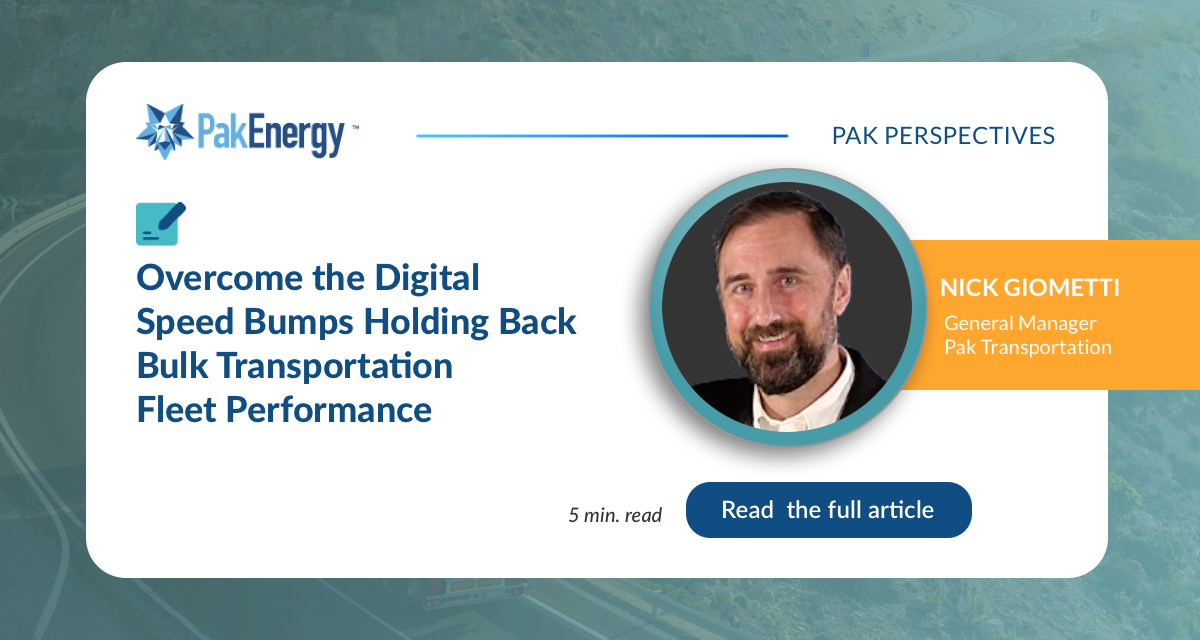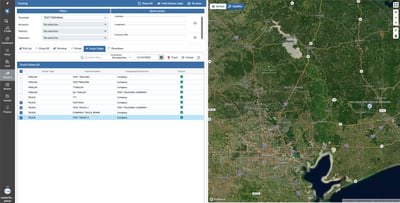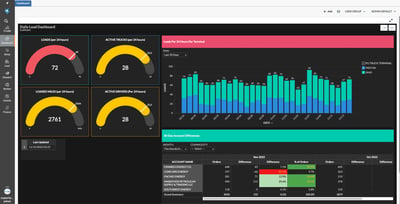
If you are an operator of a bulk commodity transportation fleet, "going digital" was something you had to do to compete and meet a long list of regulatory requirements. Despite the paper run tickets and bills of lading stuffed into the doors of cabs, trucking has long embraced information technology, from the electronic logging devices (ELD) on every truck and the smartphones in the hands of drivers to back office systems for orchestrating the big transportation dance. But all of these tech solutions work independently and require precious time and resources to shuffle data around, creating digital speedbumps that hold back trucking fleet performance and profitability.

Faced with competing pressures from the nationwide driver shortage, inflation, and fierce competition for loads, bulk commodity transporters need a modern transportation management system (TMS), purpose-built around the types of materials they move that brings the back office and field together in one, affordable solution. But the reality is that most bulk commodity transporters rely on a mishmash of disconnected technologies that cumulatively represent a transportation management system. This includes software or spreadsheets for tracking driver availability, load management, scheduling, ticketing, compliance, invoicing, and payroll, a process that strands data in various silos.
TMS Designed for Bulk Commodity Trucking
Several years ago, I had the opportunity to invest in a bulk commodity trucking startup. We started with a few rigs and grew the business to 80 trucks hauling crude oil out of the Permian Basin. During this journey, I got to sit in the driver's seat, literally in the cab and figuratively as I managed every back office function, including dispatch, load management, and accounting. I struggled firsthand with the challenges of managing a bulk transportation business and the digital speedbumps from data silos and disconnected software that create delays, limited operational visibility, and frustration.
Real-Time Visibility into Fleet & Ticketing Info

Rather than armchair quarterbacking a TMS solution as most software vendors do from outside their target market, my company built a transportation management system from inside a trucking business operating around the clock every day of the year. As a result, our trucking-specific TMS bypassed the pitfalls of solving the challenges of the back office and field piecemeal by creating a unified transportation management system encompassing every administrative, management, and driver function. And because we grew the product in the high load volume, fast-paced, and long roads of the oilfield, what would become PakEnergy Transportation was built for speed, reliability, and scale.
With PakEnergy Transportation, the lack of operational visibility and data wrangling are in the past. Suddenly you are capable of leveraging features only a unified transportation management system can provide with capabilities that allow you to:
Business Intelligence Dashboards - Smarter Transportation Operations

- Instantly match available drivers with an open load with our intuitive assisted dispatch feature which maximizes loaded miles and minimizes deadhead
- Seamlessly rearrange, add, drop, or reroute loads with a single click and immediately update drivers of the change
- Access vehicle and driver key performance indicators in context with other business data using pre-built telematics integrations with commercial ELD vendors
- Process and route accounts receivable invoices for better cashflow and track driver service hours in real time to get them paid within one day
- Easily stay compliant by catching regulatory violations before they happen (e.g., preventing loads from being assigned to truck with out-of-date certification)
Return on Transportation Management System Investment
TMS solutions that are unified and take advantage of the cloud's economy of scale should offer a clear return on the investment. With PakEnergy Transportation, you can increase net profits for bulk commodity transportation operations by more than 20% and haul more loads with the resources you already have, all for less than 1% of the software cost. If your transportation management system cannot provide this type of measurable value, then it is time to take the exit ramp from the status quo into the fast lanes of operational and financial success where PakEnergy Transportation accelerates business value.
Beyond the financial returns of a modern TMS like PakEnergy, your choice of software should also provide a return on investment when it comes to retaining drivers, elevating customer satisfaction, improving reputation with regulators, and reducing carbon emissions by optimizing routes and fuel usage. PakEnergy Transportation simply checks all the boxes.
Interested in taking the next step toward unlocking your back office and drivers' full potential by overcoming the digital speedbumps that hold them back? Download our exclusive eBook now, 10-Point Roadmap to Next Level Trucking Fleet Performance and Profitability.

Nick Giometti
General Manager, Pak Transportation
